From Boar To Deer: 3 Of Tokyo’s Best Game Meat Restaurants
Savor The Rich Flavors Of Meat That Is Good For You And The Environment
Try some wild boar stew, deer sashimi, or if you’re very lucky – badger — at these recommended game meat restaurants in the capital.
Game meat consumption in Japan is described in the nation’s oldest existing collection of poetry, the Manyoshu, which has entries from as early as the fifth century. As in the West, the upper classes hunted game for sport, but the meat was also an important source of protein for dwellers in mountainous regions and other areas where vegetable farming was difficult.
Today, game meat in Japan is usually referred to by the French word, “gibier” (ジビエ), and its use is being encouraged not only to satisfy our culinary needs but also as a measure to help reduce crop loss caused by wild animals.
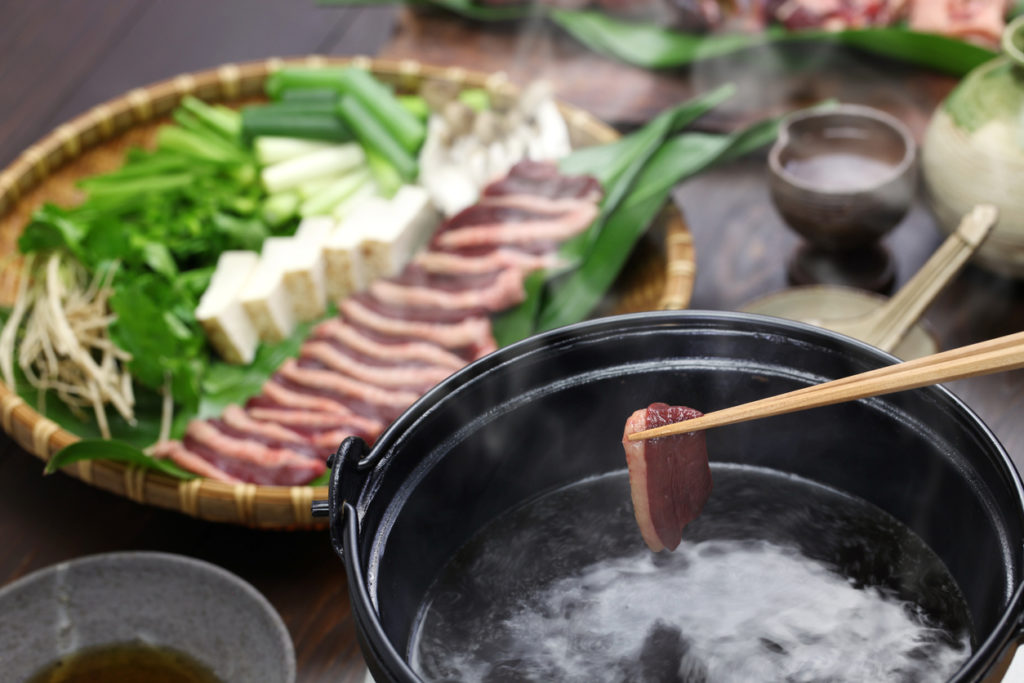
Why eat game meat?
Game meat is high in protein and vitamins and low in fat and cholesterol in comparison to other red meat. Deer, in particular, is high in iron but has fewer calories than chicken breast. Game meat enjoys a complexity of flavor and is a far less uniform experience compared to eating domesticated meats. Wild animals are fattier at some times of the year than others and the taste and aroma of their meat varies according to what they have eaten – a duck that had been fed on rice near a paddy field will differ in flavor to one that has been eating berries in the mountains.
But game meat is not only good for your body, it’s good for the planet, too. The Japan Gibier Promotion Association estimates that nationwide, there is an annual crop damage inflicted by local fauna at more than ¥20 billion, with about half of that caused by deer and wild boar.
Game meat is high in protein and vitamins and low in fat and cholesterol.
Eating game furthermore avoids the many environmentally destructive factors of industrial meat production, such as huge raw waste output, high water and energy consumption, forest clearing and a disproportionate consumption of world crops via animal feed. Some organizations rate meat eating as the second-biggest hazard for the environment after fossil-fuel vehicles.
If you’re sold on the idea to get your game on, here are three Tokyo restaurants specializing in game meat that are worth your time and yen.
1. Momonjiya, Ryogoku
For Japanese game meat in the traditional style, visit Momonjiya, which was founded in 1718 and to this day continues to serve wild boar, deer and bear. The restaurant’s headline dish is boar meat nabe stew, which it flavors with miso. This relatively fatty meat becomes more flavorsome the more it’s boiled, the staff at Momonjiya assure us. It also serves this deep red meat grilled.
Momonjiya offers the low-fat, fine-grained deer meat as sashimi, as well as in a few cooked styles, including the gingered shoga-yaki dish. Bear meat – which is marbled with fat and slightly black in color – is also done as a flavored sauté. Both it and the venison can also be eaten nabe style.
The restaurant’s name incorporates a word that refers to wild game – momonji. When you see the golden boar above its doorway, you’ll know you’ve found the right place. Momojiya is a five-minute walk from Ryogoku Station’s west exit. It has tatami room seating and English-speaking staff.
Address: 1-10-2, Ryogoku, Sumida-ku, Tokyo
Tel: 03-3631-5596
Business hours: 5 p.m.-9 p.m., Monday to Saturday
2. Wana, Kanda
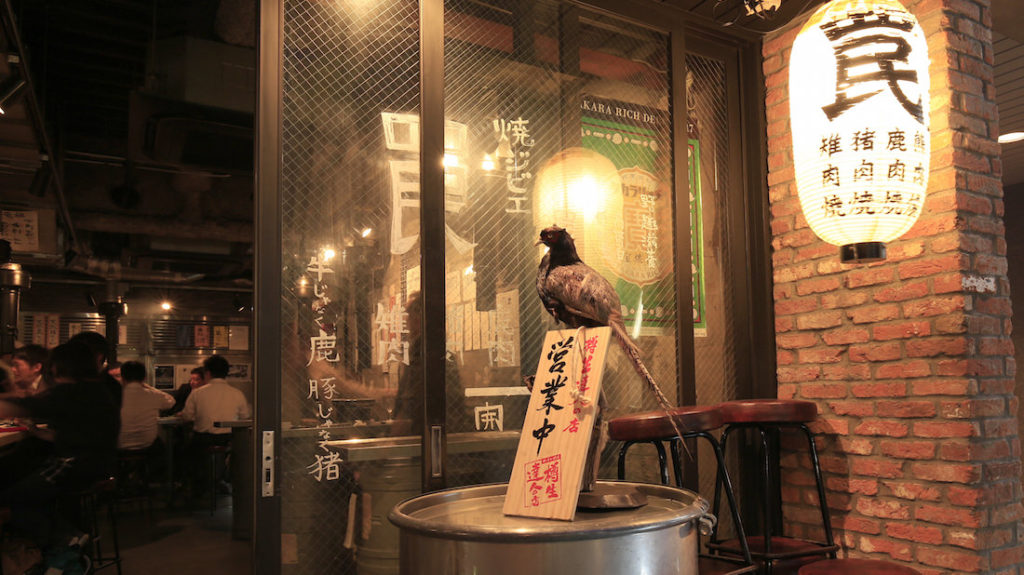
For a wilder approach to game meat, visit Wana. Grill venison or wild boar yourself at this affordable yakiniku barbecue joint. A pub-style eatery, Wana is probably best enjoyed with a group of friends who like a drink or two. Boar and deer meat are the staples here, too, but depending on what has arrived from the hunters that day, you may be able to try rarer meats like bear, quail, hare, duck or even badger.
Be warned, though: this kind of dining is not for the faint-hearted. Your order of quail may still have its head attached. The staff will advise you on how to charcoal grill it yourself atop a shichirin earthen brazier. Wana also offers aged deer meat, wild boar spare ribs and steamed boar dumplings that are plump with meaty juices.
Naturally enough, the décor includes mounted animal heads and other hunting paraphernalia. The word wana, by the way, means “trap.” Wana has a sake adviser on staff to help you pair your beverages with the distinct flavors of the meat. You can even bring your own bottle or go for the all-you-can-drink option. The restaurant is a three-minute walk from JR Kanda station’s west exit. There are three other Wana branches in Tokyo: in Nakameguro, Gotanda and Kajicho.
Address: 1F, 2-10-10 Uchi-Kanda, Chiyoda-ku, Tokyo
Tel: 03-3251-8899
Business hours: Monday to Friday, 5 p.m.-11:30 p.m.; Saturday 4 p.m.-11 p.m. Closed on public holidays
3. Gibier’s Market, Daimon
For a casual and affordable game meat, head to Giber’s Market. Along with stew and grilled meat, this izakaya, or Japanese tapas-style restaurant, also offers some creative gibier dishes, like game-meat pizza and sushi.
The plate of 10 nigiri sushi using five different types of meat is even available at lunchtime, as is a game-meat version of the Sichuan tofu saute, mabodofu. Try a more basic test of the palate with a dish of grilled boar meat and pork that allows you to compare the flavors of these culinary cousins. A grilled duck and chicken plate is also available both at lunch and at dinner. At night you can tuck into a nabe stew of either deer, wild boar, duck or horse meat. Some of Giber’s Market’s more unusual creations include a long and winding game meat sausage, a juicy wild boar version of the chashu stewed meat dish, and a duck ajillo. The restaurant also offers a variety of party courses and all-you-can-drink options. Seating is in private rooms, making this a great venue for groups.
Address: 2F, 1-28-13 Hamamatsucho, Minato-ku, Tokyo
Tel: 03-5733-3916
Business hours: Monday to Friday, 11 a.m.-3 p.m. & 4 p.m.-midnight; Saturday, Sunday, public holidays, 4 p.m.-midnight.




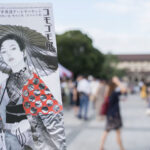







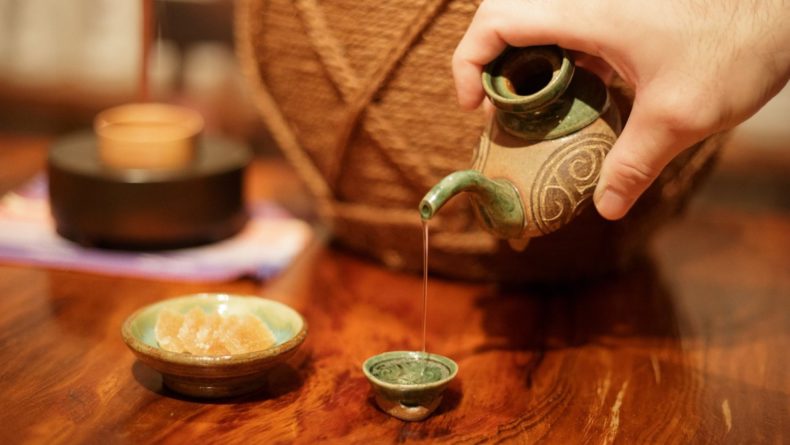
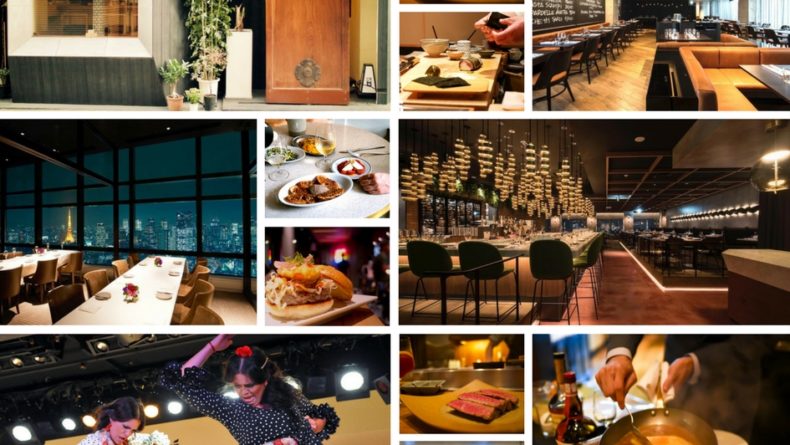
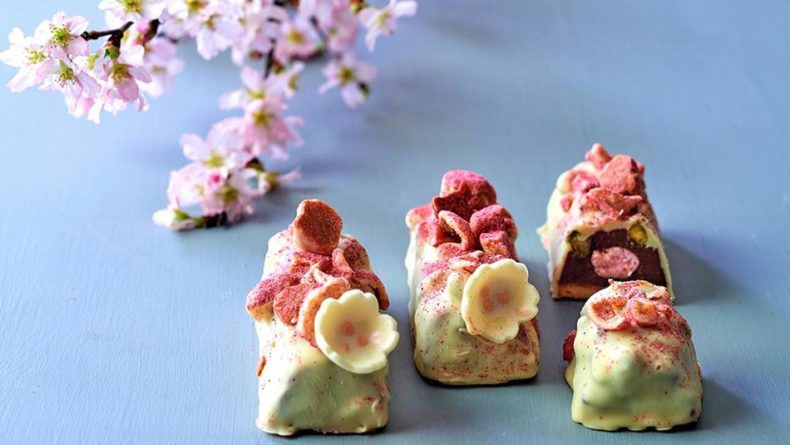
Leave a Reply